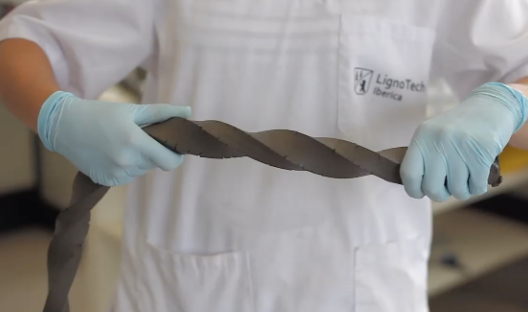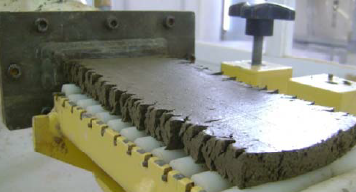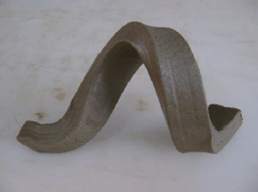
Extrusion is a common process used to manufacture different types of ceramic products, for example, face bricks, ventilated walls, floor tiles, special shaped products and many others. Several parameters affect the operation of the extrusion. These parameters include the nature of the raw materials, their particle size, and their plastic behavior, the water content and the additives you use.
The plasticity of the clays is a critical parameter in the extrusion. Sometimes, the available materials are local clays which might not have the optimum properties, thus making the production of perfectly finished ceramic products very challenging. Many of these challenges in extrusion could be overcome with the use of more plastic clays. Nevertheless, it is often found that these clays are not widely available, and their price is frequently very high, when not volatile.
On top of that, there is a trend to include recycled materials into the formulations with the objective of improving the circular economy in the ceramic industry. Unfortunately, these recycled materials are often non plastic, which negatively affects the plasticity of the mix.
Another parameter to be considered in the extrusion process is the pressure at the die of the extruder. The pressure gives an indication on the friction inside the machine. If pressure is high, it means that there is a significant resistance from the mix to be transported and molded, which can have a negative effect on throughput and energy consumption. Furthermore, it might lead to cracks at the edges of the bricks or tiles. Alternatively, lowering the pressure in the extruder leads to lower energy cost, and increasing the productivity of the bricks or tiles.
One of the options to decrease the friction in the extruder and the pressure at the die, is to vary the water content of the clay. However, high moisture content has been seen to lead to low compaction, lower strength values , high drying shrinkage and critical behavior during drying that lead to the appearance of cracks
Therefore, when the plasticity of the mix cannot be improved by changing the raw materials and/or the clay moisture, the use of additives is seen as the best way to overcome challenging extrusions, especially for complex shapes and/or large tiles. Inorganic substances (bentonite, electrolytes), organic substances (cellulose-derived polymers, CMC) or other biopolymers increase the plasticity of the local clays to prevent plasticity issues enabling correct extrusion.
The question remains on how to evaluate the need for an additive. For this purpose, it is possible to easily determine the plasticity index, which is a parameter used in the ceramic industry to evaluate how plastic and moldable a ceramic material is. This index measures the difference between the liquid limit - the moisture above which the mass has not enough consistency to be moldable - and the plastic limit - which is the minimum percentage of water needed to make the clay moldable. Plasticity indexes between 15 to 30% are considered optimal for extrusion.
BioKeram T is a new modified biopolymer that is described as an innovative solution to overcome extremely challenging extrusions. It is used as 3 products in 1, increasing plasticity and strength, improving drying behavior and minimizing shrinkage.
The results of the pilot scale extrusion show that this product –
- Reduced the appearance of shaping cracks
- Caused soft edges
- Provided optimal extrusion conditions
- Increased strength and maintained the rest of the properties of the final product
- Minimizing shrinkage thanks to its improved drying behavior.


Click below to download the full case study which goes deeper into what the product can offer.




